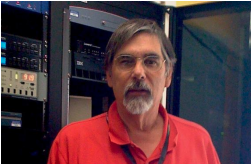Even Rural Stations Serve the Public Interest

[August 2016] Lately, there is a lot of interest in “AM Improvement” in general. But Bill Putney points out that many rural stations – AM and FM – are in the best position to serve local audiences. Putney believes opening a special translator window for rural stations will be a big help to them, But who will help?
I do not know about you but I am a little tired of the FCC seeming to be a wholly-owned subsidiary of the Cable and Cellular industry groups and the NAB.
Although mostly ignored inside the Beltway, rural stations deserve consideration as they serve in the public interest.
Helping Truly Local Stations
In particular, many community stations in rural areas have special challenges, many of which could be solved by a translator.
Yet, there has not been a general translator filing window for a decade. For newer stations such as ours, there has not been a window open coming since we have been on the air.
After asking, I have been told by FCC media staff that there will not be a general translator window “…anytime in the near future.”
A Solution for Rural Radio
It seems that the only actions the FCC is willing to take are in response to political pressure.
For that reason, I have put together a letter (see below) explaining the need and sent it to both of our U.S. Senators and our U.S. Representative. If you feel as I do, I urge you send a message to your U.S. Legislative representatives asking them to encourage the FCC to open a special translator window to support rural community radio. You have my permission to cut and paste, in part or as a whole, the following message.
Make it your own but please let your elected officials know that the NAB does not represent all of the broadcasters in the U.S.
There is Precedent
Many feel as I do that the FCC has set a precedent by opening the special AM translator filing windows. It reasonably follows that the Commission could open a translator window to support rural community radio as well.
When considering the “AM Improvement” project the FCC has undertaken, my principle thought is that if the FCC had not been pushed into changing the Rules to allow more stations, remove power limits, and eliminate the clear channel stations, there would be less reason to “Improve AM” now.
Interestingly, the same folks that pushed those changes are now demanding that the FCC fix the very problems created. Many of these comments can be read now on the Commissions’ ECFS page.
Changes in the Industry
Back when AM broadcasting started it was the only game in town. It is not that way now.
FM has become a better local distribution mechanism for mobile and disconnected listeners. If you want to send the same information to everyone in the world, the Internet is the right tool now.
AM works really well in rural areas and on the open road where the noise floor is naturally lower. More power, fewer stations.
Yes, it has been regulatory changes which have confined AM to make it a local service instead of giving it its proper place in the emerging way of things and transforming it into a regional service for mobile and disconnected listeners.
There really is no reason to have huge chains of AM stations that all broadcast the same program in every location. At this point in time, urban focused AM stations should be an anomaly.
About That Noise Floor
The FCC has a lot of tools to limit interference from consumer devices that they have failed to use. That has led to a rise in noise floor even on the FM band.
Unfortunately, it is now about two decades too late for the FCC to start thinking about getting the noise under control. One example that shows why this is so is a YouTube video I was watching a week or so ago where the presenter was doing an “unboxing” of a new consumer device made by a foreign manufacturer.
Included with the device was a bag full of ferrite isolators. The presenter commented that he did not know what the ferrite cores were for and that he had never seen any problem just not using them. The FCC allowed this device to be imported based on the interference mitigation the ferrites would provide – but then allowed them to be installed, if desired, by a consumer with no explanation that the ferrites are required.
The Commission has a lot to answer for. But, to be fair, they have been pushed and pulled politically and have gotten away from their mission to regulate in the public interest, and instead seem to be regulating in the special interests of a small section of those they are charged with regulating.
A Letter For Your Senators and Representatives
(To get the proper address for your Congressional delegation, use these URLs: For the House of Representatives and for the Senate. )
Dear (insert name here)
This is a request for your help in asking the FCC to open a translator window to benefit rural radio stations.
The FCC’s AM Broadcast Revitalization policy that has allowed FM translators to be moved up to 250 miles, many of these were moved to urban areas, stripping rural communities of whatever FM translator services they had.
While many translator owners have made 5- and 6-figure windfalls when they sold these translators, this is a profit that could never be traded for a rural translator service. At the same time, whatever the outcome of the Commission’s AM revitalization efforts, the FCC now has established a precedent for creating a translator application filing window to address a specific need.
So, here is the need: It has been over a decade since the last general translator filing window. Some newer stations have never had a bite at the apple because they were granted licenses subsequent to the last translator window.
Setting that aside, many community broadcasters in rural areas have special financial and geographic challenges that large urban network stations do not have.
For example, we generally produce programming directed specifically at our communities. We have smaller audience bases that are dispersed over larger geographic areas. We depend on direct financial contributions from the communities we cover to operate.
Translators can make a real difference in the viability of a non-commercial rural broadcaster.
Problems in the Past
The FCC is understandably shy about opening a new general translator application window.
They look at their databases and they see there are a large number of un-built Construction Permits for translators. Furthermore, the last window created a land rush that took the FCC over a decade to resolve.
Both of these issues were born out of the same root cause: translator CP speculation by nonbroadcasters. Such folks filed for translator CPs with the hope of making a lot of money when they sell it to a broadcaster who needs one. They usually had no interest in building these translators so there has been that big backlog of unbuilt translator CPs in the FCC’s database waiting to be sold for 6-figure prices.
Since it costs relatively little to apply for the CP – and the supply is cut off to the market after the window closes – this looks to them like a big money making opportunity. This turns the translator CP into a financial instrument, something they were never intended to be, and creates a land rush whenever a filing window opens.
A Way to Help Rural Stations
I suggest that there is a way to meet the needs of rural community broadcasters who need to adequately serve their widely dispersed audiences and the Commission’s need to have an orderly, efficient and effective filing window.
1) The owner of the translator CP and subsequent licenses granted for this filing window must be the same as the main station owner.
2) For this filing window, a translator’s main station cannot be changed except to another owned by the main station listed in the CP.
3) Ownership of a translator CP or subsequent license filed for in this filing window would not be transferable except where the main station licensee and ownership of the main station and the translator are transferred to a single subsequent owner.
4) Translators filed for in this window must be within 50 airline miles of the main stations’ transmitter.
5) Since these translators will principally be used in a rural context and the translator may be the only or principal radio service, it is appropriate to require these translators to carry Emergency Alert System messages appropriate to their location either by the main station carrying the translators EAS assignments as well as its own or by injection of appropriate EAS messages at the translator.
6) The 60 dBu contour of translator CPs granted in this filing window may not include areas with population densities in excess of 2,000 per square mile, nor will a modification be granted such that their 60 dBu contours cover such an area.
7) This criteria is intended to suppress the “market” in CPs and replace it with the actual needs, based on filings by broadcasters acting in the public interest. More frequent filing windows should be instituted so that CPs are not warehoused but are promptly constructed and licensed.
With these comments in mind, I urge you to contact the FCC at the earliest opportunity to request that they arrange for and open a window for rural radio stations to obtain a translator.
Respectfully submitted, (your name and station here)
– – –
Bill Putney, WB6RFW is Chief Engineer of KPTZ in Port Townsend, WA.
You can contact Bill at: billp@kptz.com
